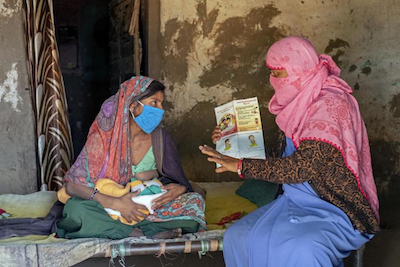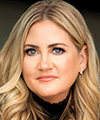Baby formula companies are responsible for “a sustained flow of misleading marketing messages,” some of which are in violation of international standards on infant feeding practices, according to a new report commissioned by The World Health Organization and the United Nations Children’s Fund.
The report, which sought to uncover the marketing practices used by the companies that comprise the $55 billion formula industry and how those tactics influence parents’ decisions regarding infant feeding, found that 51 percent of parents and pregnant women said they’ve been targeted by baby formula companies with marketing messages in an attempt to persuade them to choose formula feeding over breastfeeding.
 |
The WHO/UNICEF report claims the “aggressive” marketing practices employed by the baby formula industry to parents and health workers include messages that are “often misleading, scientifically unsubstantiated” and reinforce myths about breast milk and breastfeeding. The report claims some of these tactics also violate the WHO International Code of Marketing Breastmilk Substitutes, a landmark public health agreement adopted by the World Health Assembly in 1981 to promote safe and adequate nutrition for infants and protect mothers from aggressive marketing practices.
The report specifically cites the use of industry marketing techniques that include “unregulated and invasive online targeting; sponsored advice networks and helplines; promotions and free gifts; and practices to influence training and recommendations among health workers.”
According to the report, exposure to formula milk marketing reached 84 percent of all women surveyed in the United Kingdom, 92 percent of women surveyed in Vietnam and 97 percent of women surveyed in China.
“False and misleading messages about formula feeding are a substantial barrier to breastfeeding, which we know is best for babies and mothers,” said UNICEF Executive Director Catherine Russell in a statement. “We need robust policies, legislation and investments in breastfeeding to ensure that women are protected from unethical marketing practices—and have access to the information and support they need to raise their families.”
The WHO/UNICEF report surveyed 8,500 parents and pregnant women, as well as 300 health workers in eight countries (Bangladesh, China, Mexico, Morocco, Nigeria, South Africa, the United Kingdom and Vietnam) between August 2019 and April 2021.


 What the biggest meal of the day can teach us about serving up effective nutrition communications campaigns.
What the biggest meal of the day can teach us about serving up effective nutrition communications campaigns. Tips to refine and amplify your CPG brand strategy to win in 2024 and beyond.
Tips to refine and amplify your CPG brand strategy to win in 2024 and beyond. Strategic communications strategies for success in the growing “food is medicine” movement.
Strategic communications strategies for success in the growing “food is medicine” movement. How brands can authentically communicate sustainability issues and create a brand experience that’s compatible with consumers’ values.
How brands can authentically communicate sustainability issues and create a brand experience that’s compatible with consumers’ values. Communicating the effects that climate change and a growing world population have on our food system—and why change is needed.
Communicating the effects that climate change and a growing world population have on our food system—and why change is needed.


 Have a comment? Send it to
Have a comment? Send it to 
Mar. 1, 2022, by Joe Honick
Damned important survey data. Now, how has WHO/UNICEF transmitted it to places it can do most good? What are the responses from the "aggressive" marketers about whom some pretty nasty stuff is alleged here? The results here have essentially called the companies involved liars.